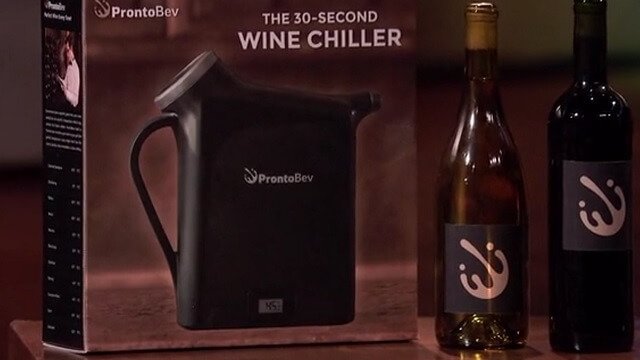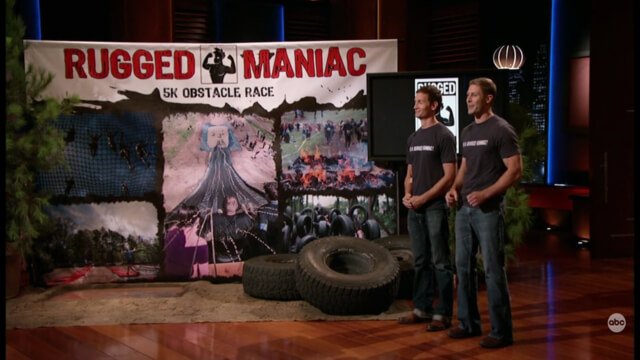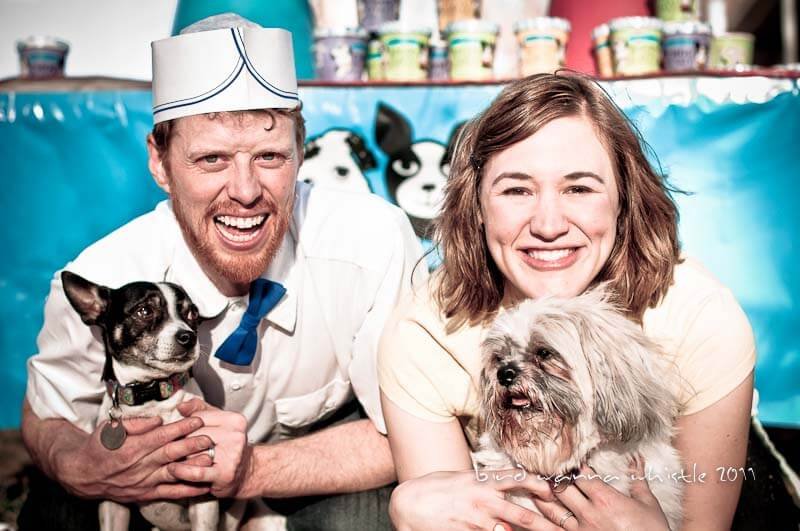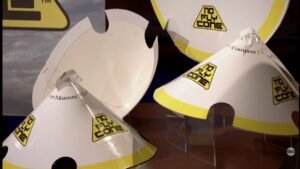Let’s bust a myth right now: Getting a deal on Shark Tank doesn’t mean you’ve made it. If anything, that handshake is just the start of the real grind. ProntoBev looked like an overnight win for wine lovers—but did it stack up once the Shark Tank lights dimmed? Let’s cut through the hype and see what actually happened.
ProntoBev’s Shot at Shark Tank
ProntoBev came roaring onto Season 9, looking to impress both wine snobs and business sharks. Alexander Simone—a founder with hustle—rolled in with a clean pitch: Instant wine chilling, no fuss, no watered-down flavor. We’re talking a gadget for every dinner party and desperate college house in the country.
Why the excitement? Warm wine ruins the vibe. Ice buckets are slow. The ProntoBev promised to chill any wine in seconds. It’s the kind of problem everyone’s felt, but few have bothered to solve—the perfect Shark Tank hook.
Can hardware go from kitchen drawer idea to cocktail hour essential? That’s what ProntoBev was about to find out. If you ever thought why hasn’t someone fixed this?—Alexander Simone did, and bet his business on it.
The Big Pitch: Can Instant Wine Chilling Win the Sharks?
Let’s get to the pitch room—where the real show goes down. Simone wasted no time. He told the Sharks he needed $100,000 for just 5% equity. That’s a $2 million valuation, pre-revenue. Bold.
He poured warm wine into the ProntoBev, poured it out for the Sharks, and waited for faces to light up. The demo worked—wine, cold, fast, no watering down. The room was interested, but skeptical.
Simone was pitching big. There were no units in stores yet, just crowdfunded backers hungry for product and a founder still hunting for scale. For seasoned operators, this is classic pre-revenue sizzle—the big reveal, but the hard work’s all ahead.
The Sharks had questions. How much to make? ($22 a unit.) How much to sell? (Early Indiegogo backers paid $89, with a plan for a $129 retail tag.) Did people actually want it? On Indiegogo, hundreds did—enough to get noticed. Sales, though? Zero at pitch time.

Product Breakdown: What Makes ProntoBev Different
This wasn’t some knockoff wine sleeve. ProntoBev packed a pronto gel inside stainless steel—think ice pack tech, but souped up for fast action. You stick the device in the freezer, then pour your wine through. Boom: chilled in thirty seconds, without watering it down.
On paper, it’s clever. The science isn’t outrageous. Wine snobs hate dilution, and time is always running short before the guests show up.
Here are the hard numbers:
- Production cost: $22 per unit.
- Crowdfunding price: $89.
- Retail price: Targeted at $129.
Simone’s value play? Go premium, justify the price with speed, and aim at upmarket hosts who want a cool gadget—literally and figuratively.
But hardware is a bruiser’s game. Anyone building physical products knows it’s 10% idea, 90% blood, sweat, and logistics. Fast innovation, complex supply chains, lots of ways to burn through cash before you ever see a dollar back.
Net Worth and Valuation: What Was ProntoBev Really Worth?
Here’s where founders and Sharks usually argue. Alexander Simone asked for $2 million valuation—$100,000 for 5%. Pure startup optimism.
But you’ve got to back that up. Valuing at $2 million before shipping a single unit? That’s a bet not just on tech, but on execution, marketing, and a wave of customers you haven’t even found yet.
The Sharks called him on it:
- Pre-revenue: No sales means valuation swings are wild guesses.
- Crowdfunding is not the same as purchase orders or consumer trust.
- Sharks don’t invest in promises—they want traction, or a killer deal for early risk.
If you’ve ever seen hardware pitches, you know the drill. Valuing future potential is a street fight, not a spreadsheet exercise. Simone played big, but the Sharks, especially O’Leary and Cuban, sniffed risk.
The actual net worth? At its peak, ProntoBev might have been worth what backers and Simone hoped. Now, after broken promises and angry customers? The number is plain: zero.
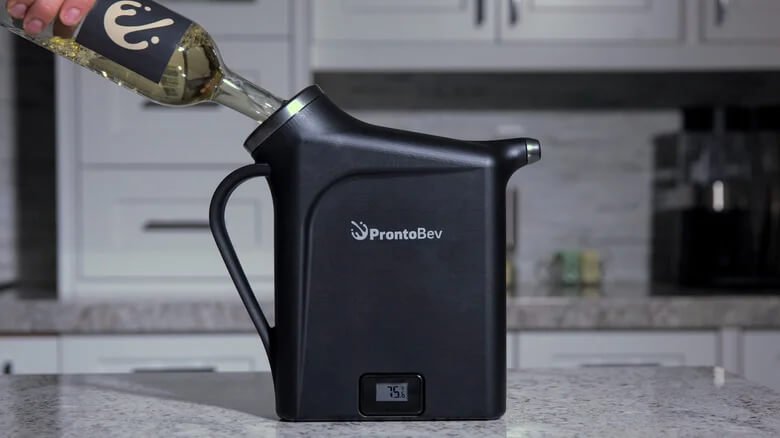
The Shark Negotiation: Who Bit, Who Bailed?
The room split quickly. Daymond John and Robert Herjavec didn’t buy the story or the price tag. Too much risk and too early—a classic pre-revenue dump-out.
Kevin O’Leary, Mr. Wonderful, made the tough-guy offer: $100,000 for 50%, flat out. That’s a founder’s nightmare, but sometimes it’s the only door left open when you’re unproven.
Mark Cuban, ever the dealmaker, played middle ground: $100,000 for 25%, BUT Simone had to raise another $100,000 from somewhere else. No free rides here—Cuban wanted skin in the game, from other investors too.
Lori Greiner called it clever but walked away.
Simone grabbed Cuban’s offer. On TV, it looked like a win—validation from Shark Tank’s biggest checkwriter. But the real test isn’t the pitch; it’s what happens backstage.
This wasn’t a Bombas-level feeding frenzy or a Scrub Daddy feel-good home run. It was a bet, but with strings attached. If you’re ever in that room, remember: contingent deals aren’t done deals. You have to deliver, not just promise.
After Shark Tank: Did ProntoBev Deliver?
Now we hit the part that makes or breaks founders—execution.
What happened after Shark Tank? Trouble—and lots of it.
ProntoBev’s deal with Mark Cuban never closed. No new capital was raised. Backers from the Indiegogo campaign didn’t get their gadgets. Delivery dates slipped. Emails went unanswered. The ProntoBev website went silent, then dark.
Angry customers flooded Kickstarter and social media, calling it a scam. Simone went quiet. The Sharks moved on.
Hardware doesn’t forgive. Crowdfunding is great for hype, but if you can’t manufacture, fulfill, and deliver, the whole thing collapses. ProntoBev had real fans and a slick prototype. What it didn’t have? The supply chain, funding, and grit to go from cool gadget to dependable product line.
I’ve seen it before—founders overpromise, infrastructure buckles, and reputations get burned fast.
Is ProntoBev Still in Business?
Nope. Let’s be blunt: ProntoBev is out. No operations. No reviews since the show. No attempts at a comeback, no pivot, no nothing.
If you go hunting for a ProntoBev, all you’ll find are old crowdfunding complaints and a dead website. Search ProntoBev Shark Tank on SharkWorth or anywhere else, you get the same answer: defunct.
Once a brand gets tagged as unreliable or scammy, it’s a death sentence—especially for consumer gadgets. There’s just no coming back from leaving real customers in the lurch.
Lessons for Founders: Real Talk on Hardware, Hype, and Burnout
What’s the big takeaway for hustlers, founders, and side-hustle dreamers?
Here’s what ProntoBev teaches—painfully:
Building hardware sucks up endless time and cash. Great prototypes mean nothing if you can’t manufacture at scale.
Crowdfunding will hype you up, but it will bite if you can’t deliver. Angry backers have long memories.
Don’t overpromise on valuation or shipping just to look good to Sharks or on stage. The street will call you out.
Contingent deals on Shark Tank? That means Congratulations, now go work twice as hard to earn it.
Burnout is real. When problems mount and hope fades, lots of founders go dark. The best grind through—or at least communicate honestly.
Simone wasn’t alone. For every Scrub Daddy or Bombas, there are twenty startups that can’t get the product out the door. The hardware graveyard is littered with clever ideas that died on the loading dock.
If you’re building anything physical, plan triple the time and money. Get your ops right. And remember: Consistency beats big splashes. Customers love hype, but they remember delivery.
Conclusion: ProntoBev’s Fast Start, Sudden Stop
ProntoBev played the Shark Tank game and almost won. Alexander Simone made it to national TV, scored Cuban’s yes, and had every wine lover in America drooling for colder chardonnay. For a few minutes, it looked like a home run.
But the real world crushed the dream. No product, no fulfillment, no comeback. Where’s ProntoBev now? Gone.
This isn’t rare. Shark Tank gives you a stage, but if you don’t have the backend sorted—manufacturing, cash flow, logistics—all the exposure in the world won’t save you. Founders, take note: Shark Tank can get you attention, but it will not build your company for you. That’s always your job.
Want more honest Shark Tank breakdowns, numbers, and case studies? Check out SharkWorth, where you get the real stories—minus the fluff.
FAQs: What Readers Want to Know
1. Is ProntoBev still in business after Shark Tank?
No—ProntoBev is out of business, with the website down and the product unavailable anywhere.
2. Did Mark Cuban’s deal really go through?
No, the deal never closed. ProntoBev failed to raise the additional funding and never fulfilled orders.
3. Why did ProntoBev fail to ship orders?
Production and cash flow issues. Like many hardware startups, they couldn’t scale or fulfill after raising funds.
4. How much money did ProntoBev raise on Indiegogo?
Enough for a strong campaign—hundreds of backers—but not enough to fund large-scale production.
5. Can you buy a ProntoBev anywhere now?
No, the product is completely unavailable. All signs point to the company being dead.
6. Was ProntoBev a scam or just a failed startup?
It appears to be a failed startup. There’s no clear evidence of intentional fraud, mostly just broken promises and bad execution.
7. What did the Sharks think about ProntoBev’s valuation?
They thought it was too high for a pre-revenue hardware play. Only Mark Cuban offered a conditional deal.
8. Who owns the rights to ProntoBev today?
Alexander Simone, the founder, presumably still holds what’s left—but with the business dead, the rights are mostly a footnote.
Thinking about building your own product and pitching it to the sharks? Learn from ProntoBev: It all comes down to execution. Don’t get blinded by the lights. The real grind starts after the cameras go off.
Want more startup truth and Shark Tank analysis? Keep reading SharkWorth—where smart founders get the straight story.

